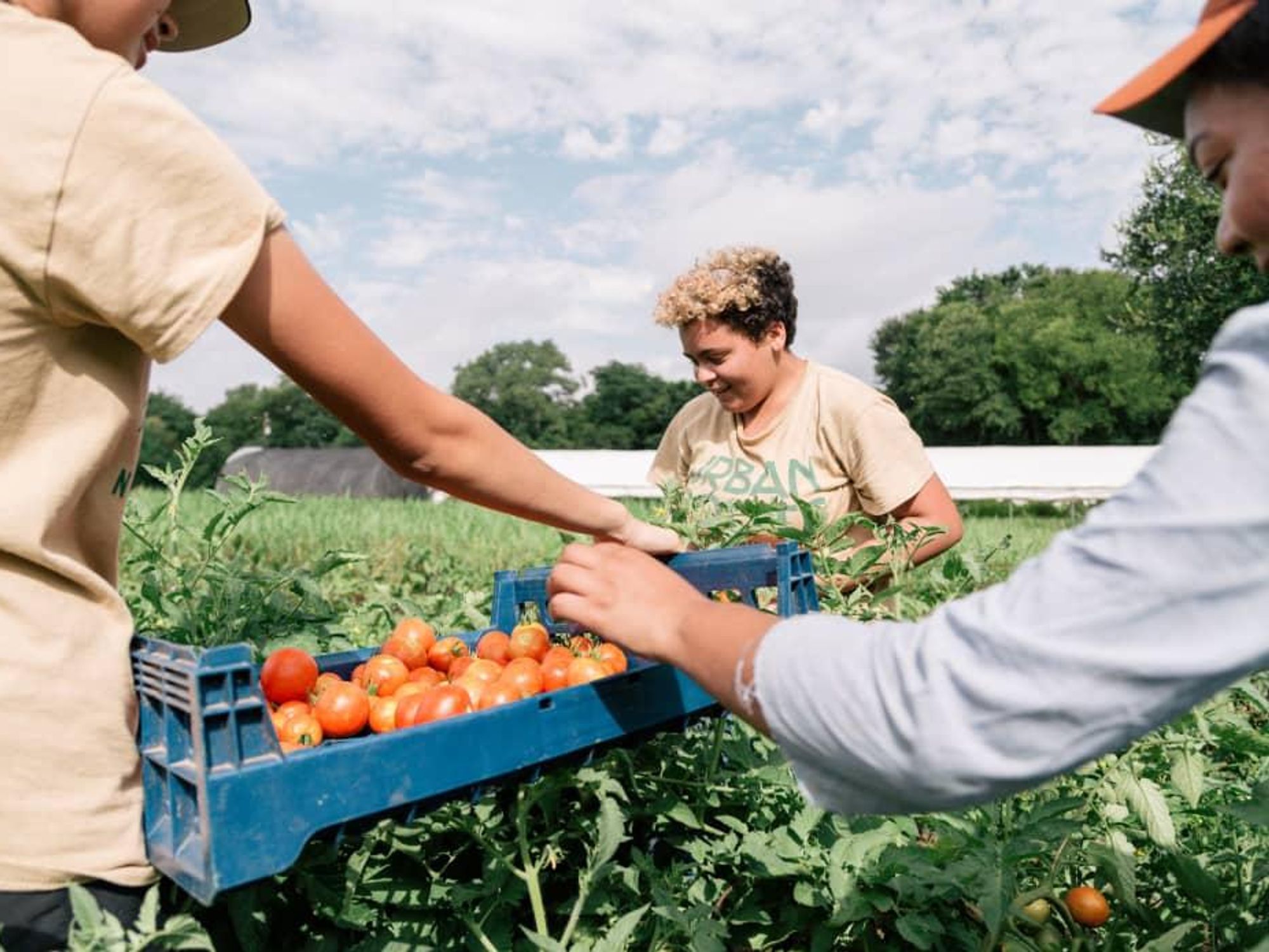Laying down Roots
Beloved urban farm plants new roots on prime South Austin real estate

Tucked away in East Austin, just minutes from the hustle of downtown, is a small plot of land turned working urban farm. The parcel, just 3.5 acres, operates much like any other farm, even if airplanes flying into Austin-Bergstrom International Airport zoom by overhead.
For nearly a decade, nonprofit Urban Roots has operated this small east side spot, growing fresh produce, which is then sold at area farmers markets, and hosting small events. But beyond business, the Urban Roots farm has served as a real-world classroom for area youth and as a catalyst for change in some of Austin's most underserved neighborhoods.
Led by executive director Max Elliott, the organization has employed more than 350 youth "interns" since officially transitioning from startup to nonprofit in 2011. Unlike so many internships that require young people to work for free, Urban Roots' program differs by offering a stipend (i.e. real money for real work) in exchange for growing the thousands of pounds of produce the farm produces every year.
The interns, who range from 14 to 17, learn not only how to grow their own food, but how to manage the business side of the weekly farm stand, how to collaborate with others, and how to work within the community.
And the community has taken notice. Customers at the SFC Farmers' Market Downtown lining up early to peruse the weekly crop, Meals on Wheels recipients chatting with the interns as they drop off fresh food, and big-name chefs donating their time in support of the nonprofit are just a few of the examples of how this little farm is having a mighty impact on Austin.
"I could never have foreseen the way the food movement has taken off in Austin," Elliott says. "It’s a food scene. It’s really hard to get peoples attention these days, and because we got in at a certain time, it’s helped us."
On December 11, the Austin City Council unanimously approved a 30-year lease for a second Urban Roots farm — a whopping 9-acre parcel in Southeast Austin — massively expanding the organization's footprint in the Capital City, and giving it the opportunity to work within another underserved community.
The land, located in Dove Springs, was purchased by the city for $650,000 about seven years ago, and originally envisioned as the site of a city recycling plant. After neighbors protested the move, City Council member Delia Garza, whose District 2 includes the Dove Springs neighborhood, pushed to see if the parcel would be a good fit for affordable housing. A survey of the land concluded that it wasn't, and so the land sat empty.
Around the same time, says Elliott, Urban Roots began looking for a larger space. With East Austin rapidly changing, the once "far out" Govalle farm near East 7th Street and Airport Boulevard suddenly found itself surrounded by development.
"We were looking for a place to do all the things that we couldn’t do at our current farm," he says. In addition to a larger space, the nonprofit was looking for land out of the flood plain and with additional parking inside a community lacking access to fresh food.
"We want to keep [the east side] site, and have a long-term home to diversify our vision," say Elliott. "This is the next evolution."
About a year ago, Elliott was tipped off about the 9-acre parcel and met with the Southeast Combined neighborhood team to introduce the organization and in turn to learn more about the community. He brought Urban Roots alumni, explained how the intern program worked, and invited Dove Springs residents to tour the east side property.
Elliott says convincing the community didn't happen immediately. "They thought it would be just be young people in a garden," he laughs. "It took a lot of dreaming big and conversations."
Eventually, however, the Southeast Combined neighborhood team agreed and in June, Garza co-sponsored a resolution to begin the feasibility process. Six months later, Urban Roots was offered the 30-year lease at $1,000 per month, a massive discount from the projected $11,000-a-month market rate. The city took into account Urban Roots' overall community benefits to offset the rent.
For Urban Roots, the opportunity to expand into Dove Springs allows it expand those community benefits even farther. The long-term vision includes an even larger working farm in a neighborhood that doesn't have easy access to a local grocery store. (Poetically, the nine acres used to be pasture for a dairy farm.) The organization also envisions a working culinary kitchen, outdoor classroom, and event space on the property.
Despite the big dreams, Elliott says the group wants to move slowly, employing local youth to help learn about the community's needs and crafting a thoughtful vision in response to what it uncovered.
Elliott says the city's decision to give Urban Roots the land still "feels surreal," and his sense of stewardship over the land is palpable, as is his understanding of what this means on a cultural level. "The city is making a huge investment in building a healthy environment," Elliott says. "To put nine acres of valuable property and say this is the best use of public land and resources for this location is a huge honor."
